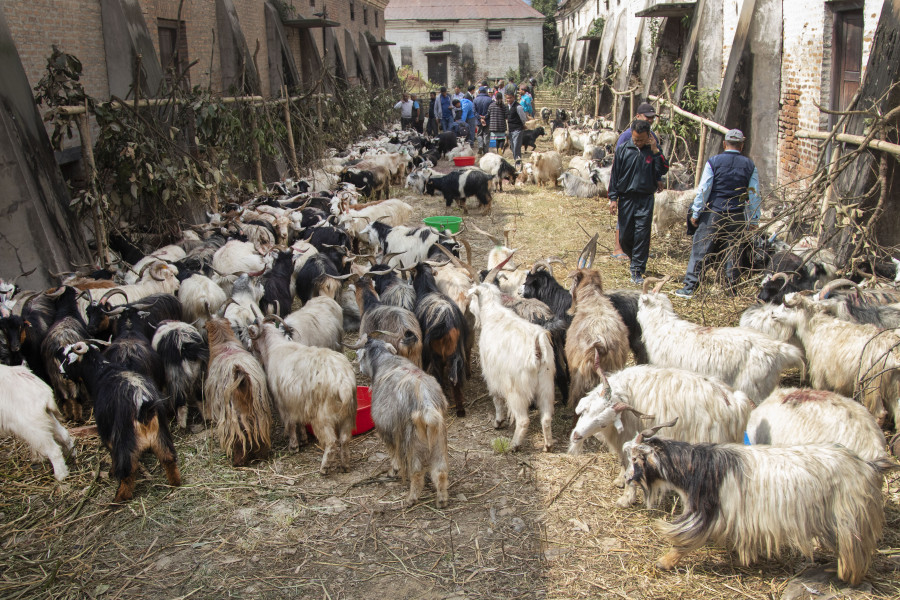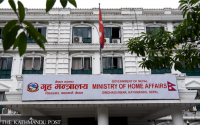National
Food corporation to supply 3,000 goats to Kathmandu to meet the Dashain meat demand
Around 1,500 mountain goats from Mustang and as many goats from other districts will be brought, officials say
Anup Ojha
Nepal Food Corporation says it is planning to supply around 3,000 goats in the Kathmandu Valley during the upcoming Dashain festival.
“Around 1,500 mountain goats or chyangras will be brought from Mustang, and as many goats will be brought from other hill and Tarai districts for Dashain,” Sarmila Subedi, spokesperson for the state-owned corporation told the Post. “We have already instructed the corporation’s branch office in Mustang to start preparations to procure mountain goats. We will soon deploy our officials to other districts for procuring goats.”
The corporation every year imports goats and mountain goats and sells them from its Thapathali office as part of its bid to ease meat supply and regulate the market during the Dashain festival when consumption of meat soars.
Officials, however, said the corporation is yet to fix the price.
“We have held an informal meeting with the commerce minister so far. Issues related to overall market inspection and price fixing will be discussed during the next meeting,” said Subedi.
According to the Department of Livestock Services, Nepalis across the country consume meat of around four million goats annually.
The department estimates that around 50,000-55,000 goats will be sold during the festival this year.
After the Ministry of Agriculture and Livestock Development strictly tightened quarantine checking on the Nepal-Indian border, the import of live goats from India has come down by 60 percent.
The government had started a strict inspection on the entry of live animals from mid-April based on Animal Health and Livestock Services Rules 2000 AD, which states that animals can't be imported without authenticated health certificate and should pass the quarantine.
“We don’t let live animals enter Nepal without quarantine pass certificate,” said Banshi Sharma, director general at the department. “But this is not going to impact prices as Nepal is self-sufficient on goat meat.”
On a possible shortage of goats during the festival, Sharma dismissed such a prospect as rumours spread by a handful of interest groups.
“In Nepal there are many community livestock development projects which prioritise goat farming, while Nepal Livestock Innovation Project has extended its services to over 28 districts for goat farming. Similarly, Heifer International Nepal has established goat value chain in the country,” said Sharma. “They can easily meet the market demand.”




 10.63°C Kathmandu
10.63°C Kathmandu.jpg)














